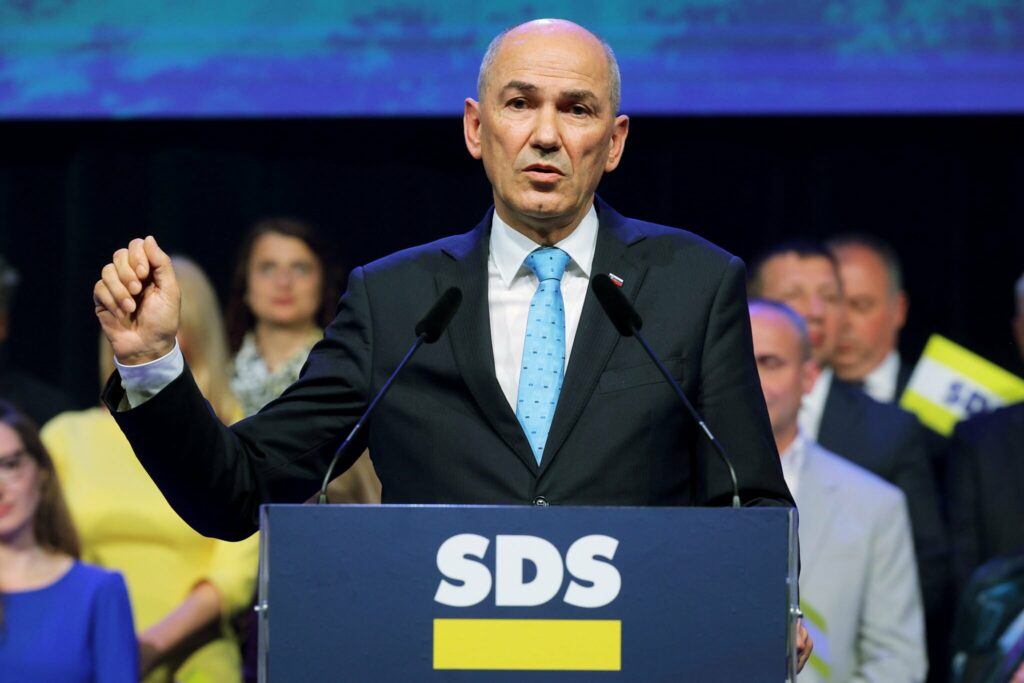“With Italy’s decision, it has become clear that our neighbouring country has had enough of ignoring the problem and is therefore introducing internal border controls, following the example of Austria,” President of the Slovenian Democratic Party (Slovenska demokratska stranka – SDS), Janez Janša, commented on Italy’s decision to introduce controls on its border with Slovenia. “It is clear to everyone around us that Slovenia is not only not dealing with this problem, it does not want to control it,” he said.
The information that Slovenia will subsequently introduce border controls on its borders with Croatia and Hungary, following Italy’s announcement, has also echoed in the National Assembly on Wednesday. Italy has informed Slovenia that, due to the changed situation in Europe and the Middle East, it is introducing border controls on its border with Slovenia. According to unofficial information, Slovenia is now expected to introduce border controls on its borders with Croatia and Hungary. The government is expected to take a decision on this as early as Thursday.
The coalition is being arrogant; migration could even be legalised
The leader of the largest opposition party, SDS, Janez Janša, thus assessed on Wednesday that with the developments in Israel and Palestine, “even the biggest sceptics seem to have realised that the situation is, indeed, serious.” A step in the right direction would have been the introduction of internal border controls before Italy decided to do so, he believes. Before that, however, he said, the government should consider a serious offer to help Croatia control the external Schengen border with Bosnia and Herzegovina.
He also pointed out that the SDS party had already proposed a discussion on the increased number of illegal border crossings at the July meeting of the National Security Council. After that, they had proposed a separate session on the subject, but both proposals had been “arrogantly rejected”. “This was even followed by a statement by the Prime Minister who said that the only solution to illegal migrations is to make them legal. He is the only prime minister or representative of a Member State of the European Union with such a position,” Janša pointed out.
He added that Italy’s decision made it clear that the neighbouring country had “had enough of ignoring the problem and is therefore following Austria’s example by introducing internal border controls.” “It is clear to everyone around us that Slovenia is not only not dealing with this problem, it does not want to control it,” the opposition leader said.
In his opinion, the situation at Slovenia’s borders in the coming months will be the same as before Slovenia joined the Schengen area. As he stressed, this is not the Europe of free movement of people, capital and ideas that Slovenia wants, but “a path in the opposite direction – in this particular case, unfortunately, it is mainly our own fault.”
New Slovenia party: Removing the fence sent the wrong signal
Meanwhile, the News Slovenia party (Nova Slovenija – NSi) believes that the decision to introduce border controls is the right way to go, but the question is whether this is sufficient. The opposition party also pointed out today that it had warned of this danger months ago. “We said that removing barriers on the border sends the wrong signal to migrants,” stressed the NSi MP Janez Žakelj. According to him, while it is not good for countries within the Schengen area to respond to the situation at hand individually, the fact is that the security situation is what it is, and Croatia should better protect the external Schengen borders, he concluded.
Both the SDS and the NSi parties also pointed to the danger that the refugees from war zones could include members of terrorist groups.
Coalition shrouded in silence
Meanwhile, the coalition’s reaction to the announced surveillance of Slovenia’s internal borders has been scarce. The Freedom Movement party (Gibanje Svoboda) and the Social Democrats (Socialni demokrati – SD) have refused to comment on the situation for the time being, while the smallest coalition partner, the Left party (Levica), said that it is reluctant when it comes to the announced measure. “Any intervention, even with the presence of the police and the army, into a certain space is also a serious intervention into the lives of people at the border,” warned the head of the Left party’s parliamentary group, Matej Tašner Vatovec, on Wednesday. In his opinion, such measures should be taken “with a grain of salt”, as they have also led to the erection of wire fences at the border in the past.
He said that while they could understand people’s possible fear, in such situations, they should, in his opinion, stick to certain established practices. “If we are talking about the situation in the Middle East being one that poses a threat in terms of a new wave of refugees, we need to have a serious discussion about why people are fleeing their homes, travelling thousands of kilometres to get away from bombs falling on hospitals and homes,” Vatovec pointed out. He added that Slovenia also needs to think about serious steps in the political process that will lead to peace in the Middle East.
Sara Kovač


